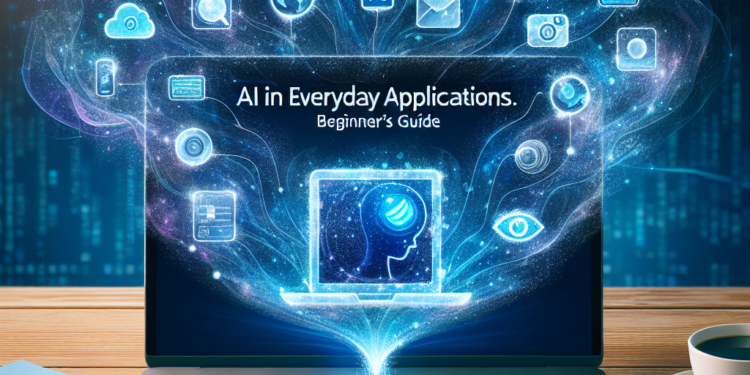Artificial Intelligence (AI) is becoming more and more prevalent in our daily lives, whether we realize it or not. From social media algorithms to voice assistants, AI is driving innovation and transforming industries. In this beginnerʼs guide, we will explore the various everyday applications of AI and how they impact our lives.
AI in Social Media
One of the most common uses of AI in everyday life is in social media. Platforms like Facebook, Instagram, and Twitter use AI algorithms to curate your newsfeed and show you content that is most relevant to you. These algorithms analyze your past behavior, such as the posts you like and the people you interact with, to predict what you will be interested in seeing.
AI also plays a role in content moderation on social media platforms. It helps identify and remove harmful or inappropriate content, such as hate speech, fake news, and graphic images. AI algorithms can detect patterns and trends in user behavior to flag potentially harmful content for human moderators to review.
AI in Personal Assistants
Personal assistants like Siri, Alexa, and Google Assistant rely heavily on AI to provide users with helpful information and assist with tasks. These virtual assistants can set reminders, answer questions, play music, send messages, and control smart home devices. They use natural language processing (NLP) to understand and respond to voice commands, making interactions with them feel more human-like.
AI in E-Commerce
AI has revolutionized the e-commerce industry by providing personalized shopping experiences for consumers. Online retailers use AI algorithms to analyze customer data, such as browsing history and purchase patterns, to recommend products that match their preferences. These recommendations increase the likelihood of a purchase and improve customer satisfaction.
AI also helps e-commerce companies optimize their pricing strategies. Dynamic pricing algorithms use AI to analyze market trends, competitor pricing, and customer demand to adjust prices in real-time. This allows retailers to maximize profits and stay competitive in the market.
AI in Healthcare
In healthcare, AI is being used to improve patient care, diagnose diseases, and streamline administrative tasks. For example, AI-powered diagnostic tools can analyze medical images, such as X-rays and MRIs, to detect abnormalities and assist healthcare professionals in making accurate diagnoses. AI can also help predict patient outcomes and recommend personalized treatment plans based on individual medical histories.
AI is also being used to enhance patient engagement and improve communication between doctors and patients. Chatbots powered by AI can provide patients with instant access to information about their health conditions, medication reminders, and appointment scheduling. This reduces the burden on healthcare providers and allows patients to access care more efficiently.
AI in Transportation
AI is transforming the transportation industry by optimizing traffic flow, improving safety, and enhancing the overall efficiency of transportation systems. Self-driving cars, powered by AI algorithms, are becoming increasingly common on the roads. These vehicles use sensors, cameras, and AI software to navigate and make decisions in real-time, reducing the risk of accidents and traffic congestion.
AI-powered navigation apps, such as Google Maps and Waze, use real-time traffic data and machine learning algorithms to provide users with the most efficient routes to their destinations. These apps can predict traffic patterns and suggest alternative routes to help users avoid congestion and arrive at their destinations faster.
AI in Finance
In the financial sector, AI is used to detect fraud, automate customer service, and personalize financial recommendations for clients. Banks and credit card companies use AI algorithms to analyze transaction data and identify unusual patterns that may indicate fraudulent activity. This helps prevent unauthorized transactions and protect customers from identity theft.
AI-powered chatbots are also being used in the finance industry to provide customers with instant support and assistance. These virtual assistants can answer questions about account balances, transaction history, and financial products, saving customers time and reducing the need for human customer service agents.
AI in Education
AI is revolutionizing the way we learn by providing personalized learning experiences for students of all ages. Adaptive learning platforms use AI algorithms to analyze student performance and preferences to create customized lesson plans and learning activities. This helps students stay engaged and motivated to learn, leading to better academic outcomes.
AI tutors, such as chatbots and virtual assistants, provide students with instant feedback and support to help them understand difficult concepts and improve their skills. These tools can adapt to the individual learning styles of students, making learning more efficient and effective.
Conclusion
Artificial Intelligence is all around us, shaping the way we live, work, and interact with the world. From social media algorithms to personal assistants, AI is transforming everyday tasks and improving efficiency in various industries. As technology continues to advance, we can expect AI to play an even greater role in our daily lives, making them easier, more enjoyable, and more productive.













